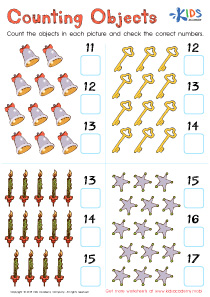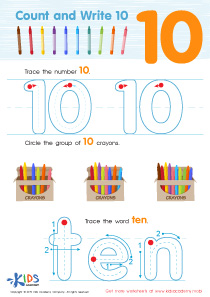Normal Comparing Numbers Worksheets for Ages 5-7
25 filtered results
-
From - To
Our Normal Comparing Numbers Worksheets for Ages 5-7 are designed to make learning fun and engaging for young children. These printable worksheets help kids develop their numeracy skills by comparing and identifying numbers through various interactive activities. Featuring colorful illustrations and clear instructions, each worksheet caters to different learning styles, ensuring that every child can thrive. Whether counting objects, identifying greater or lesser values, or introducing symbols like ‘>,’ ‘<,’ and ‘=,’ our worksheets support critical thinking and foundational math concepts. Perfect for parents and teachers, these resources make early math learning enjoyable and effective. Check them out on Kids Academy today!
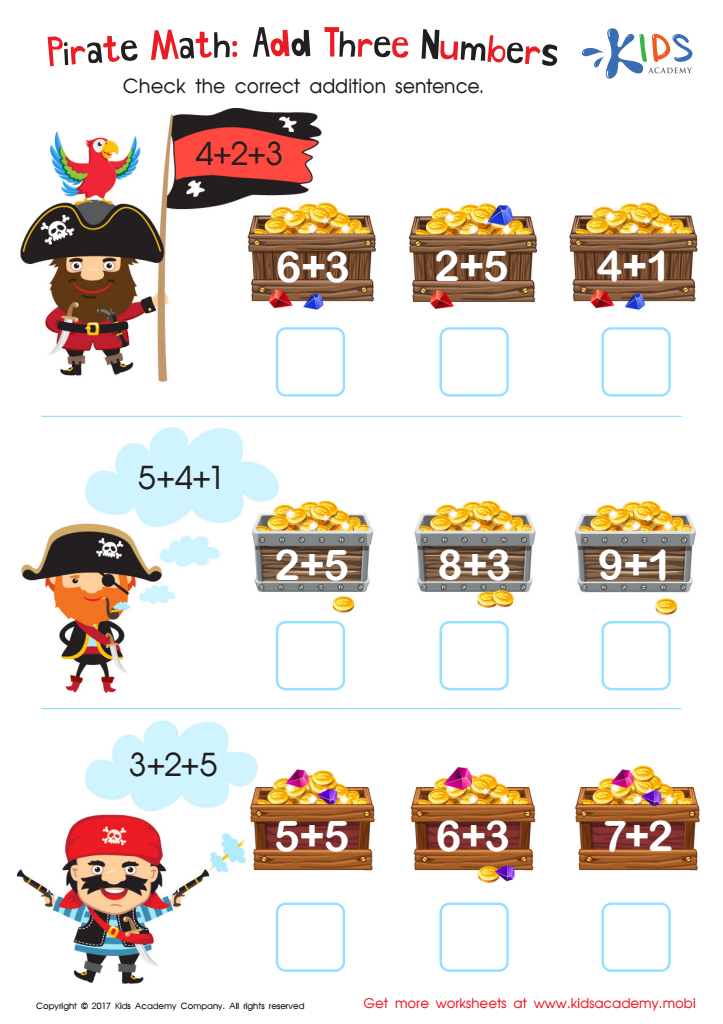

Pirate Math Printable
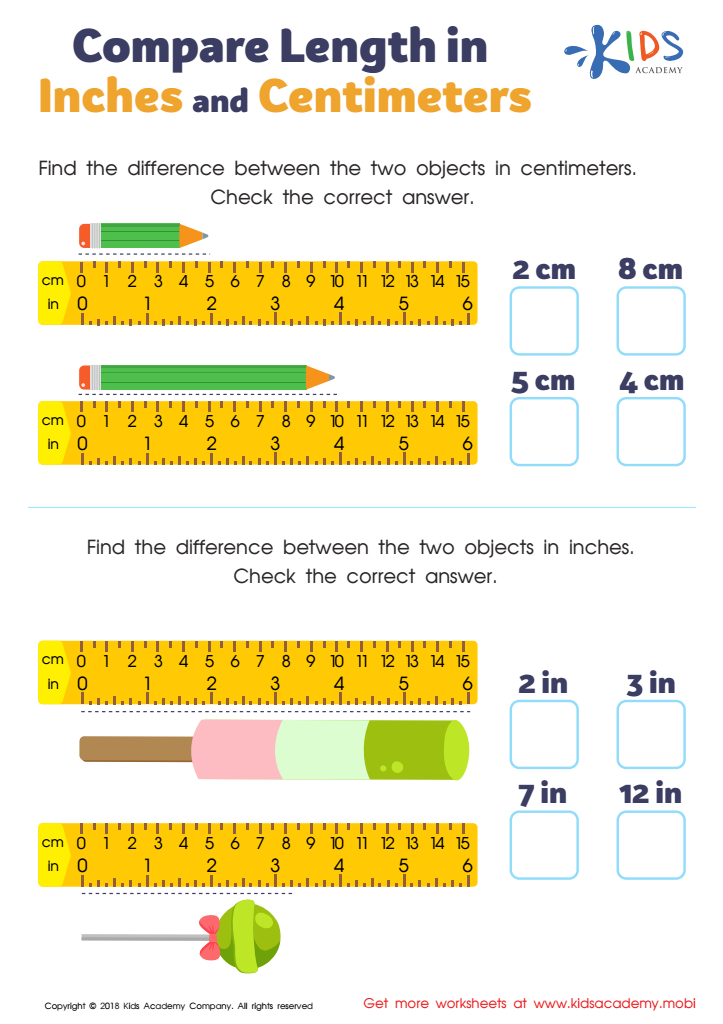

Compare Length in Inches and Centimeters Worksheet
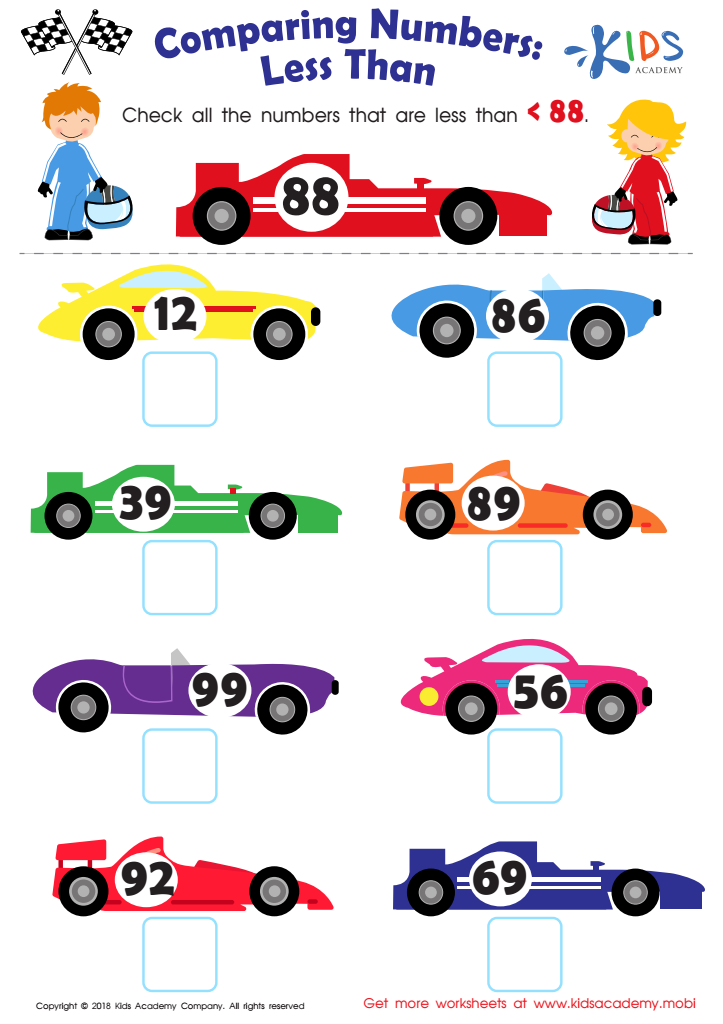

Less Than Worksheet
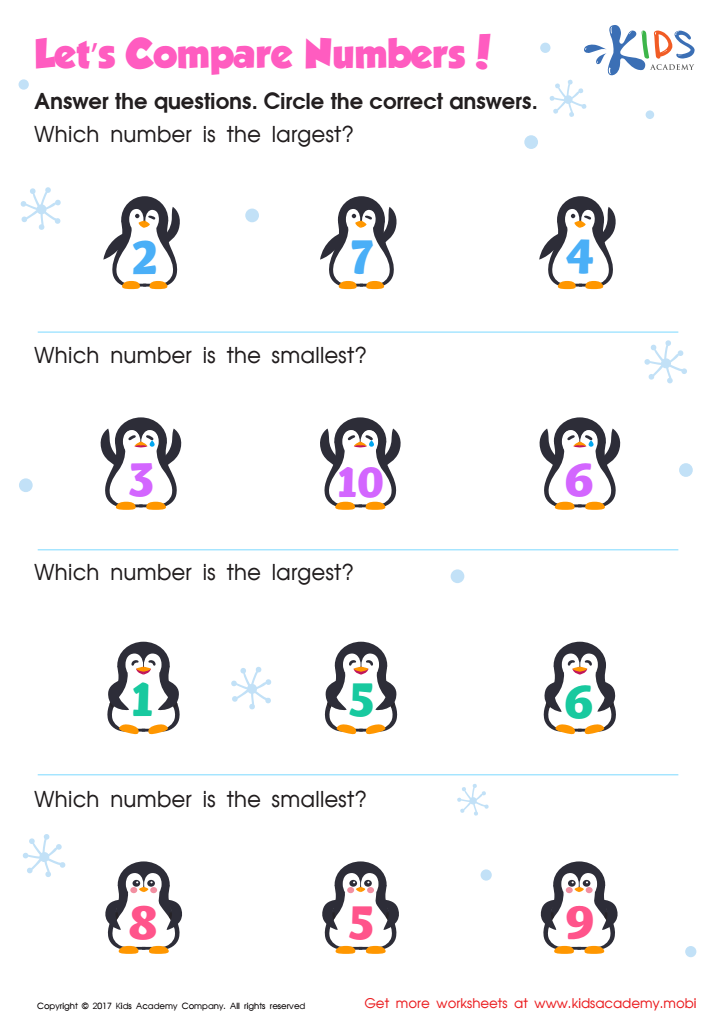

Comparing Numbers 1–10 Worksheet Kindergarten
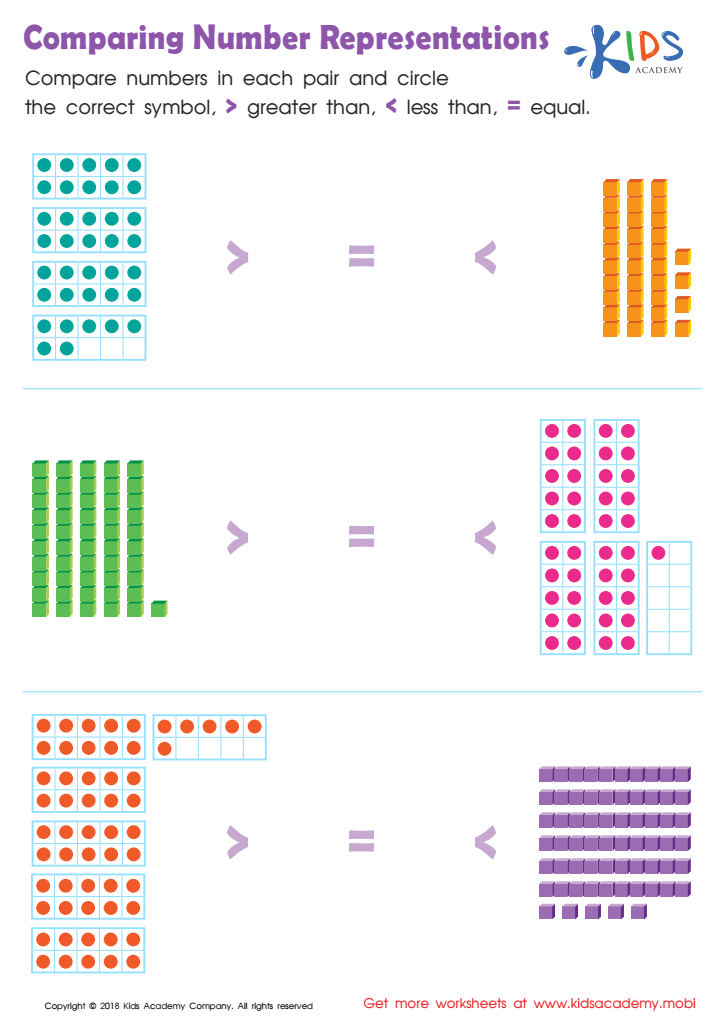

Comparing Number Representations Worksheet
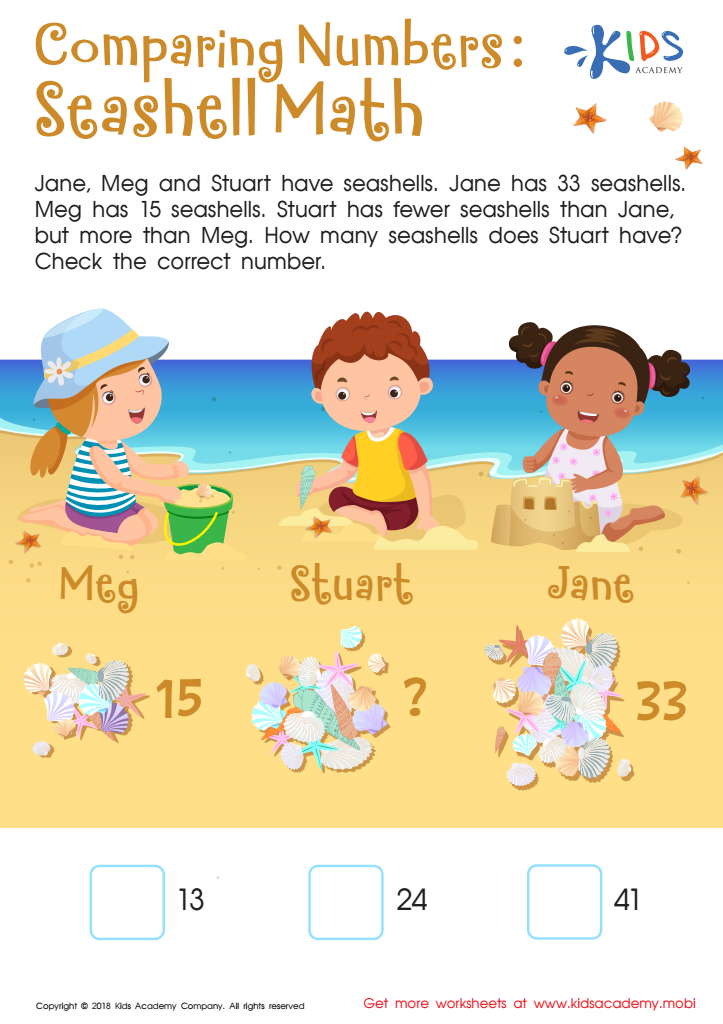

Seashell Collectors Worksheet
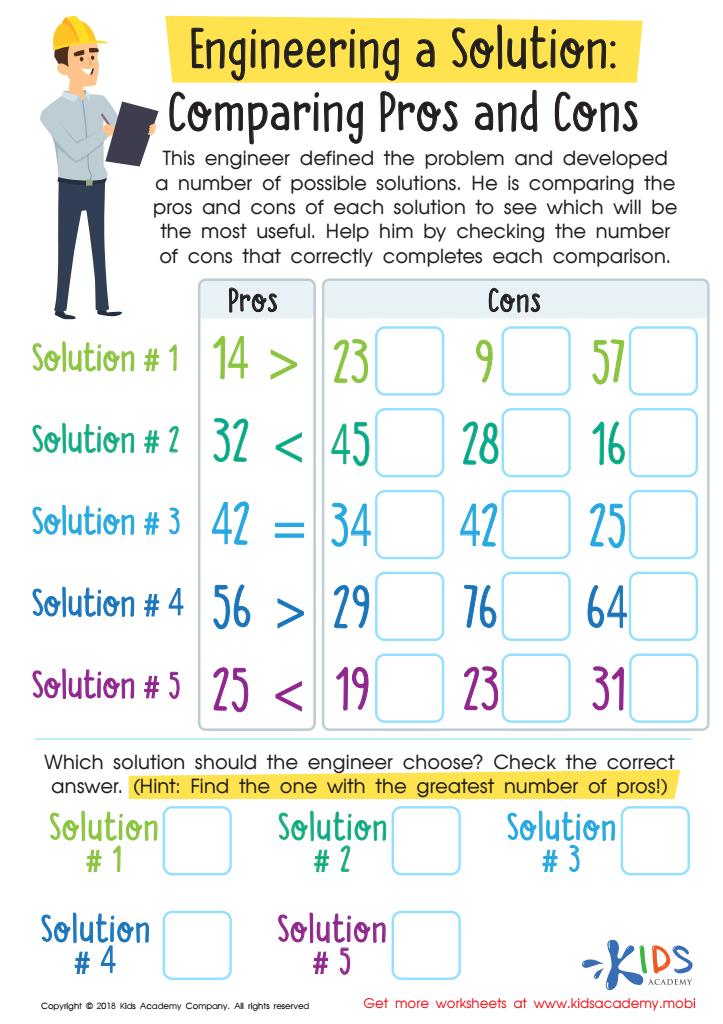

Engineering a Solution: Comparing Pros and Cons Worksheet
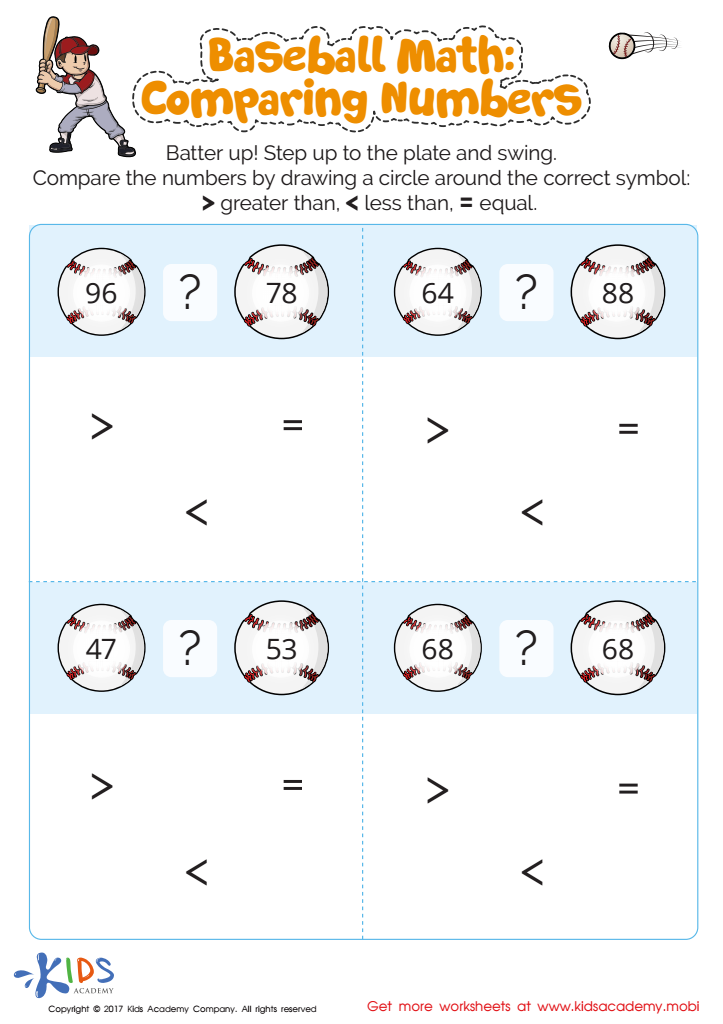

Compare Numbers Printable
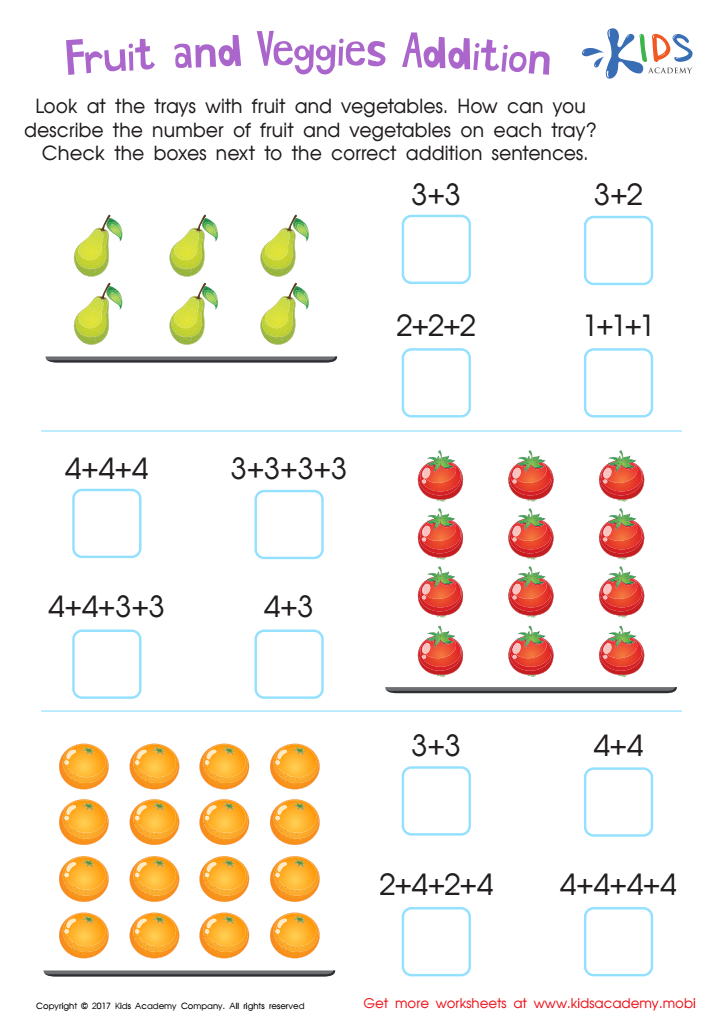

Fruit and Veggies Worksheet
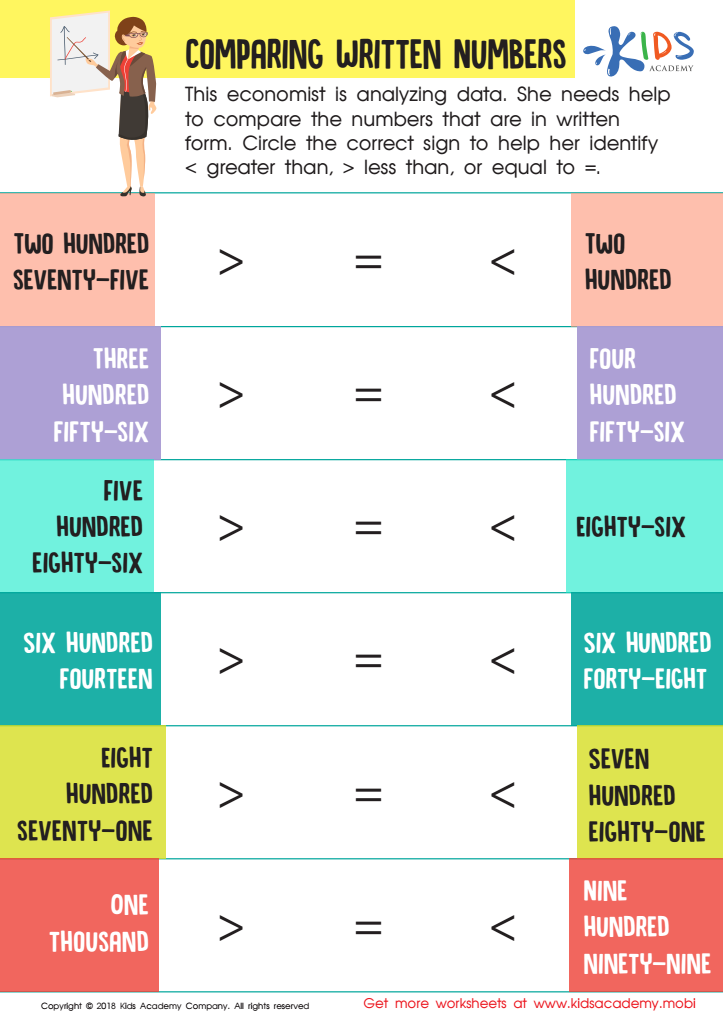

Comparing Written Numbers Worksheet
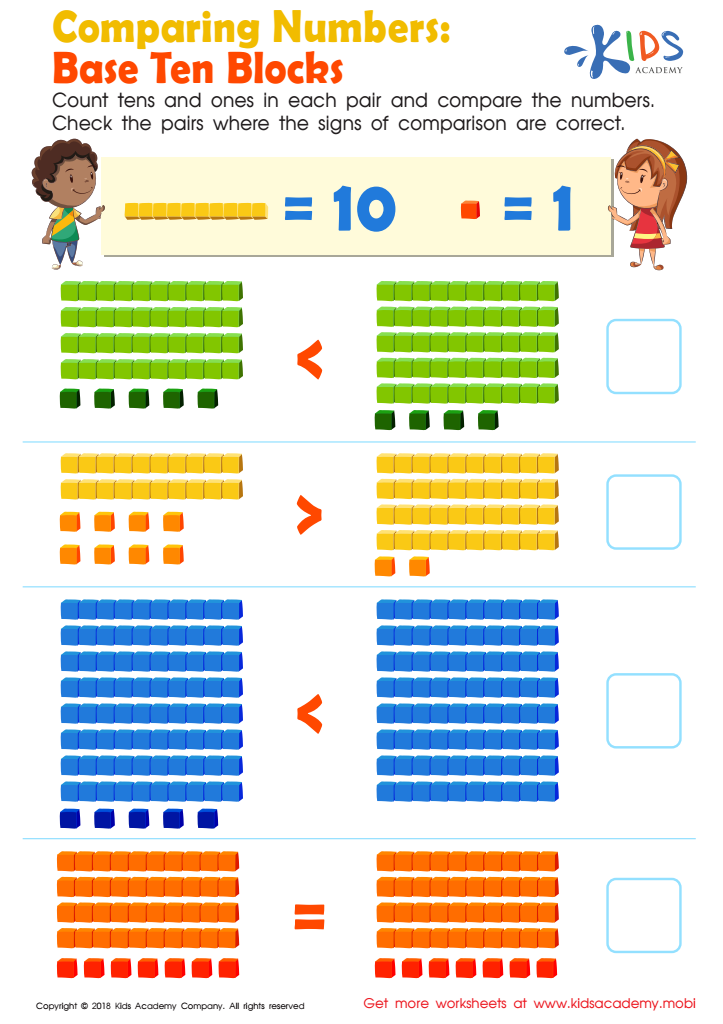

Comparing Numbers: Base Ten Blocks Worksheet
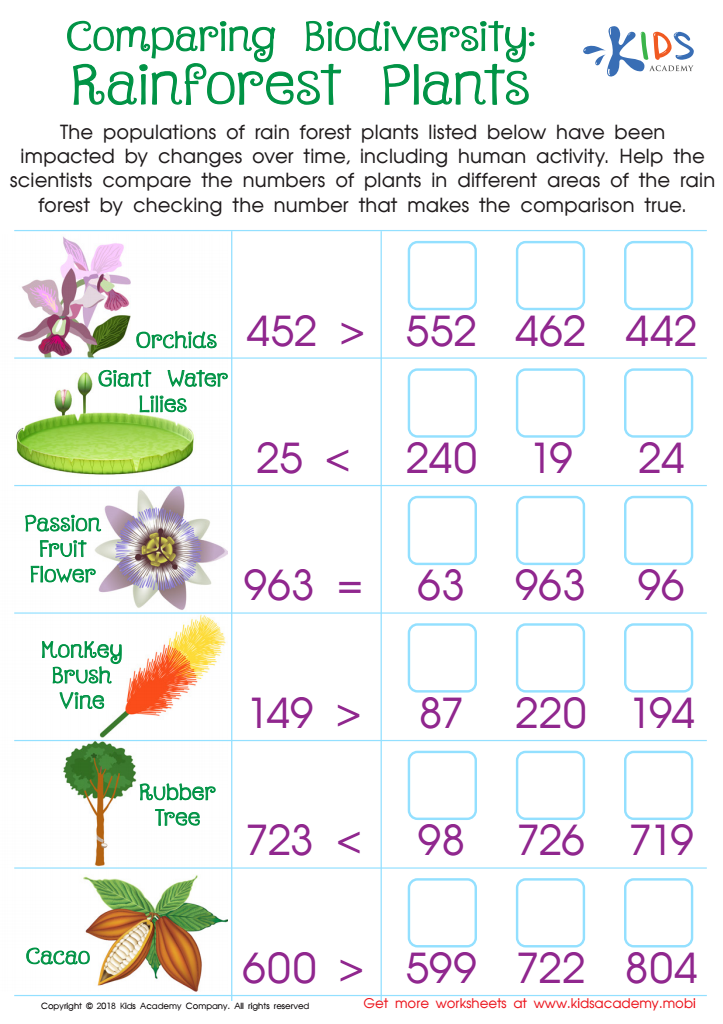

Comparing Biodiversity: Rainforest Plants Worksheet
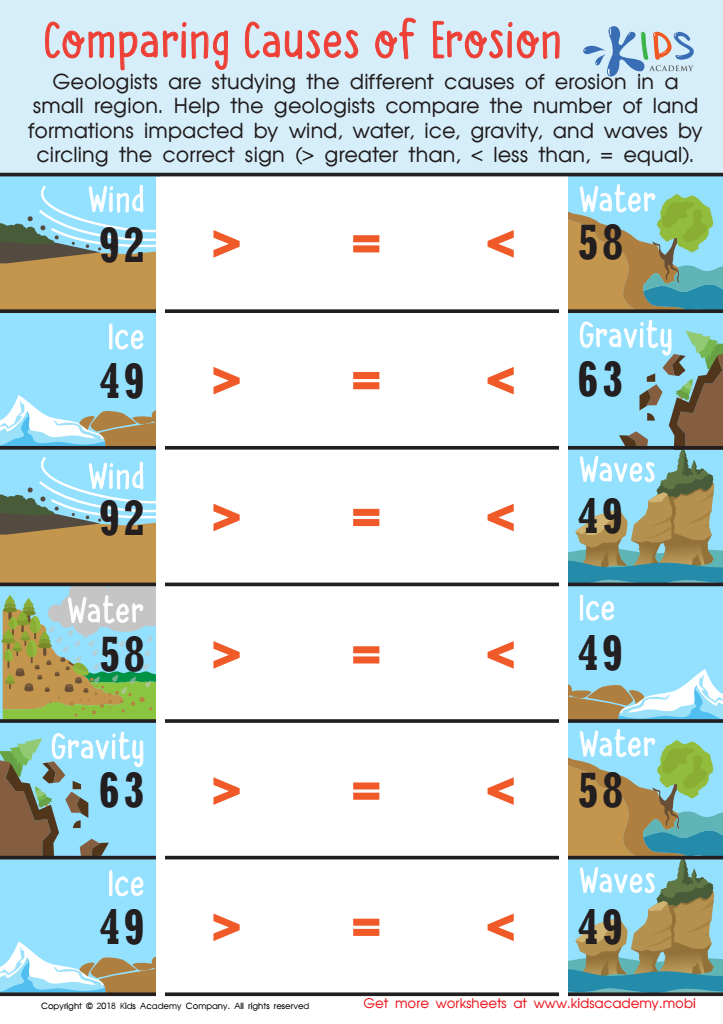

Comparing Causes of Erosion Worksheet
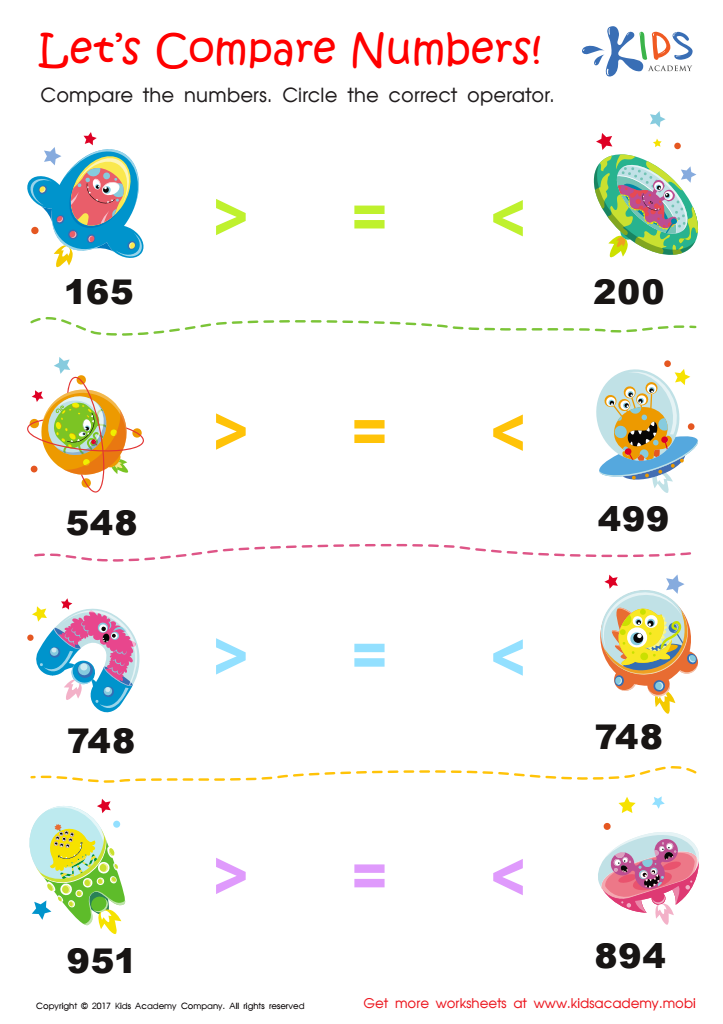

Comparing Numbers Worksheet for 2nd Grade
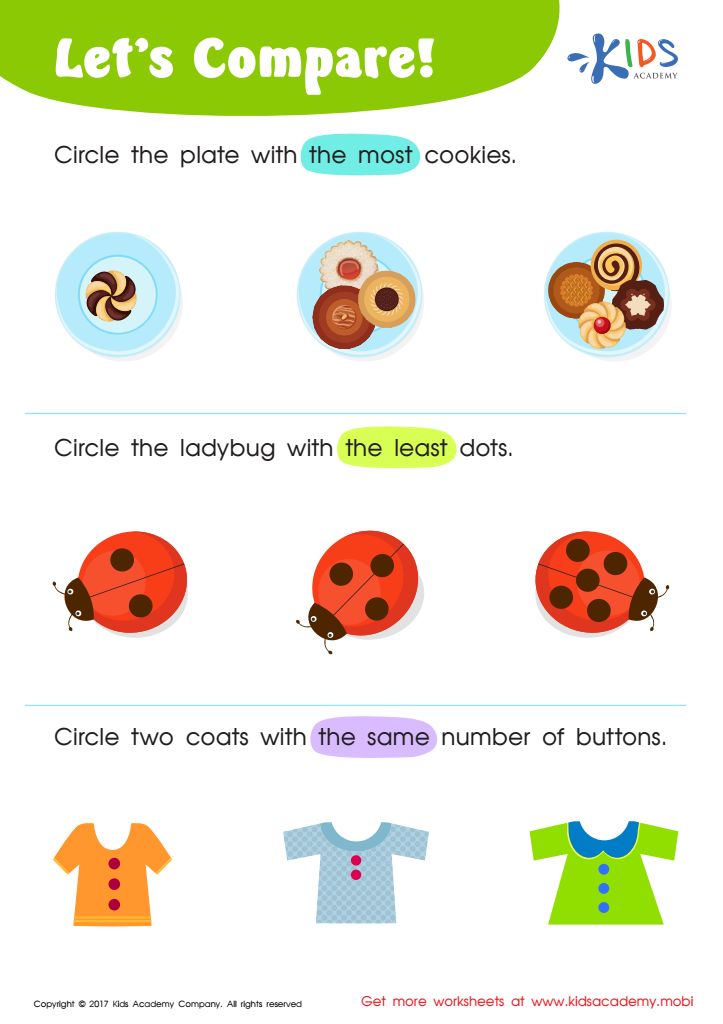

Matching: Classifying Toys by Size Worksheet
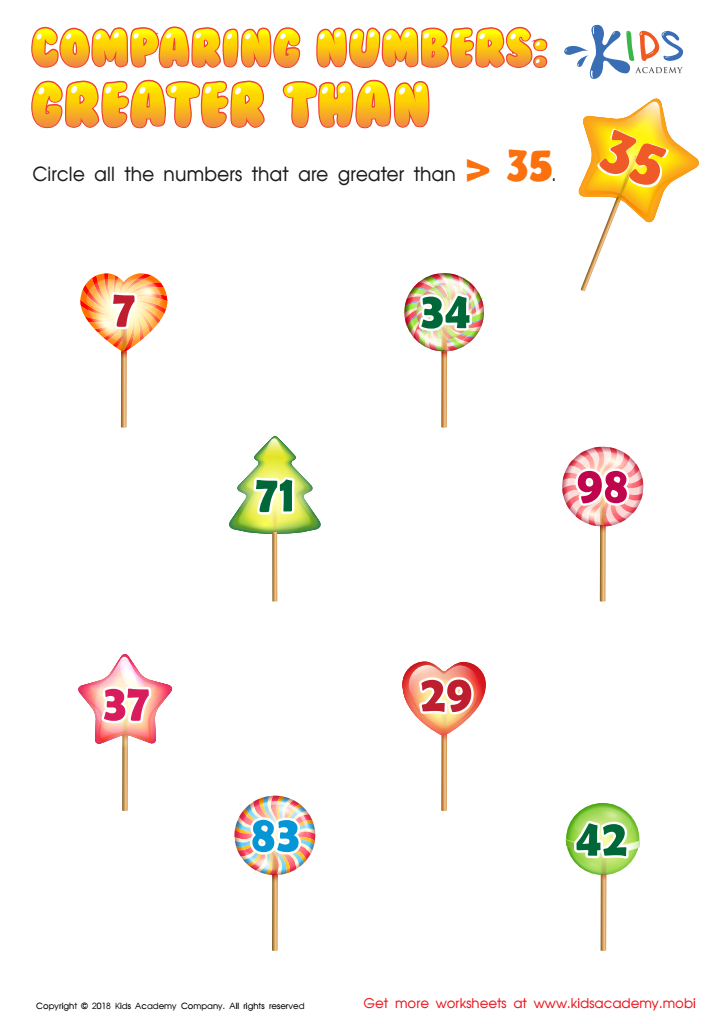

Greater Than Worksheet
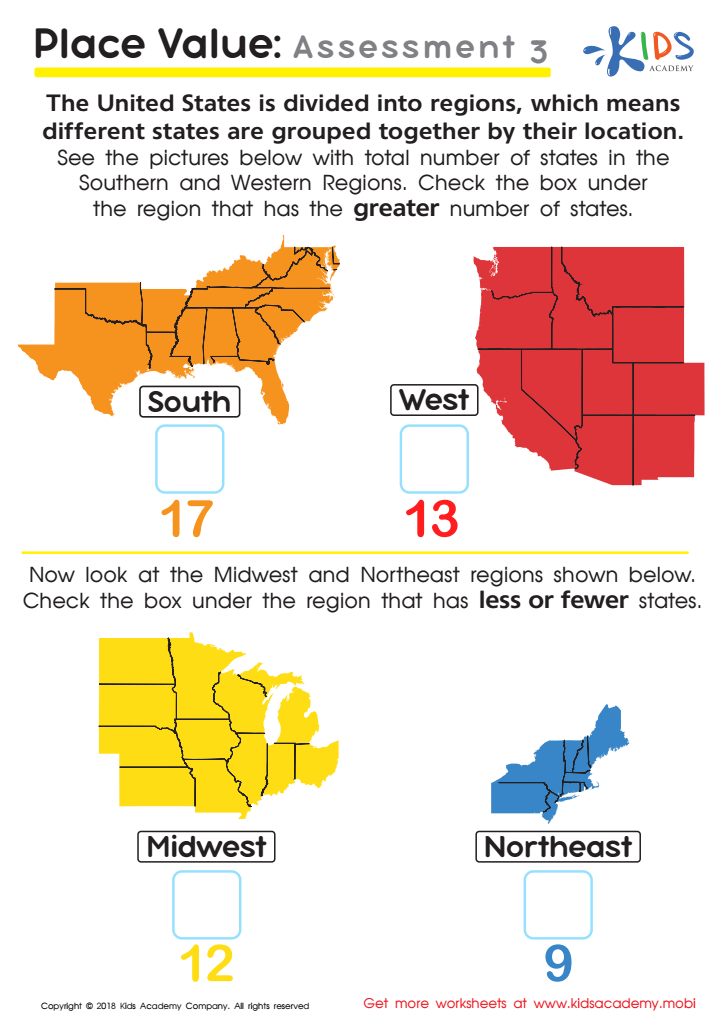

Place Value: Assessment 3 Worksheet
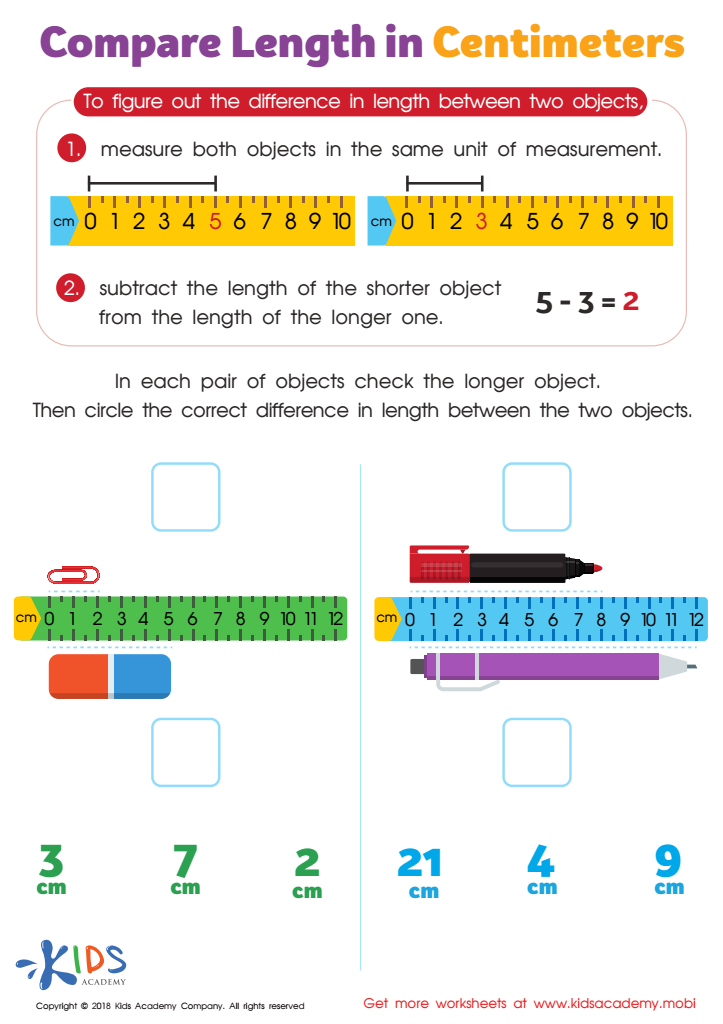

Compare Length in Centimeters Worksheet
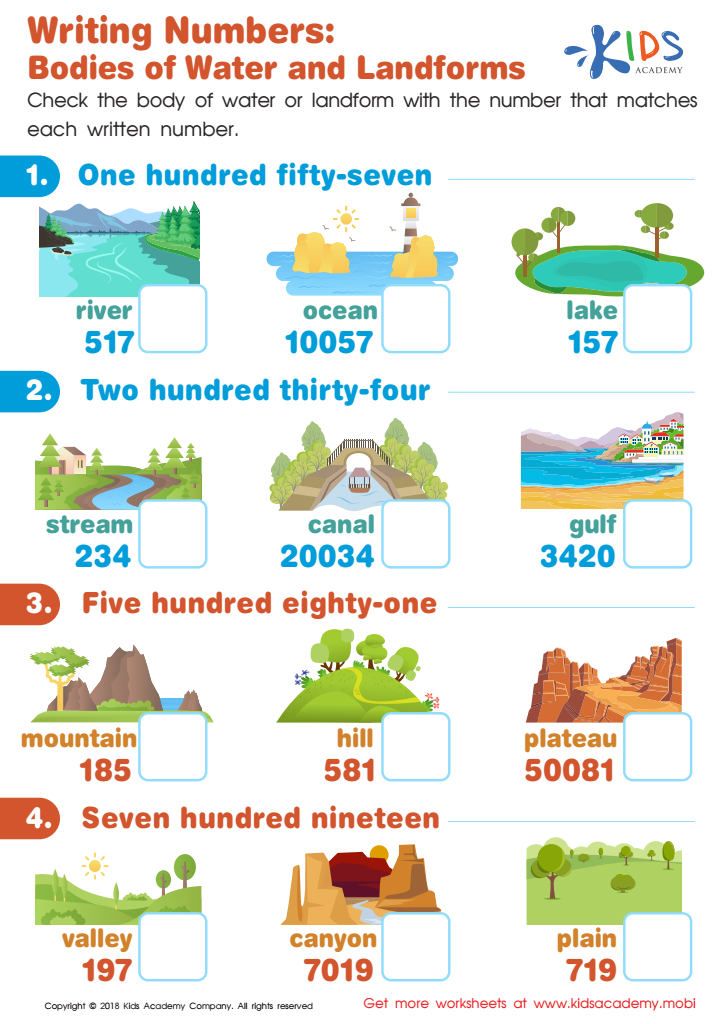

Bodies of Water and Landforms Writing Numbers Worksheet
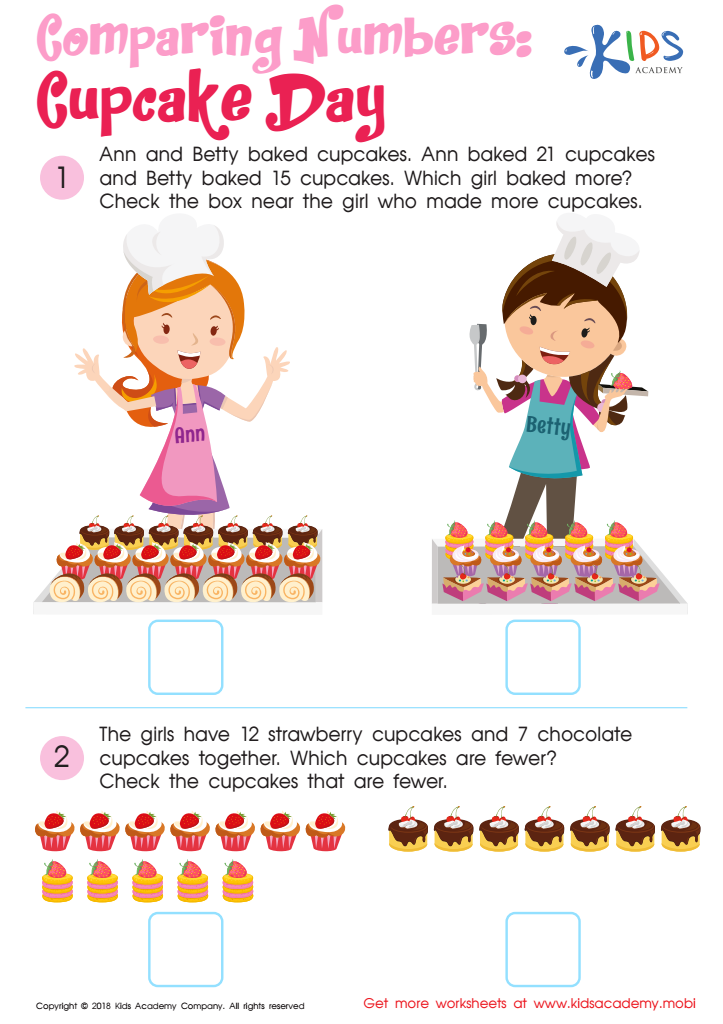

Cupcake Day Worksheet
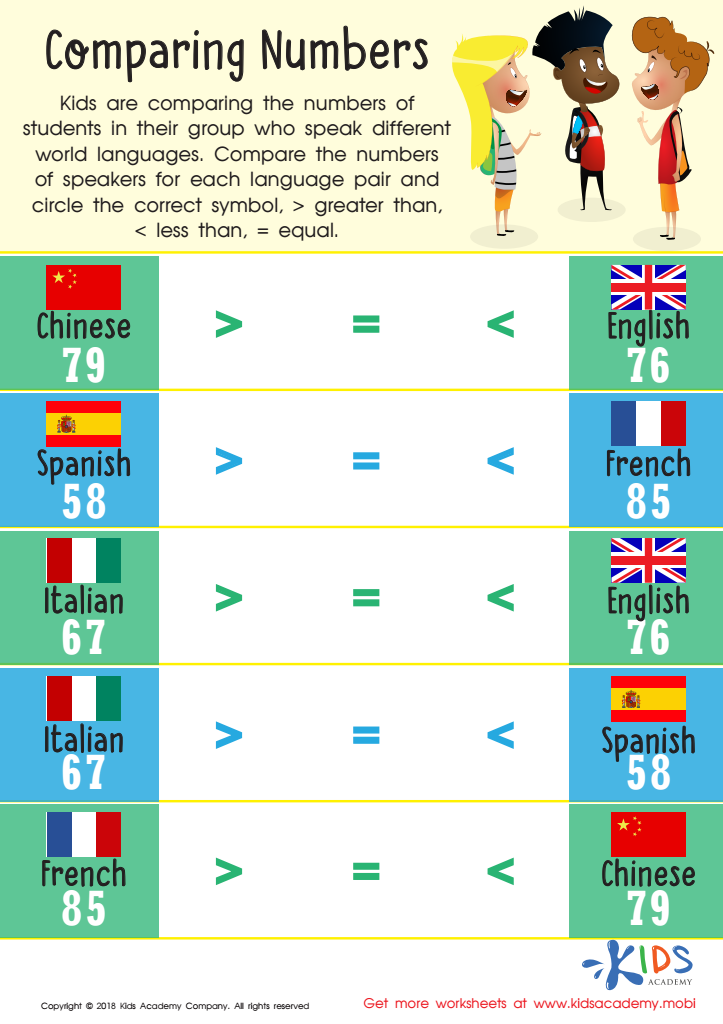

Comparing Numbers Worksheet for 1st Grade
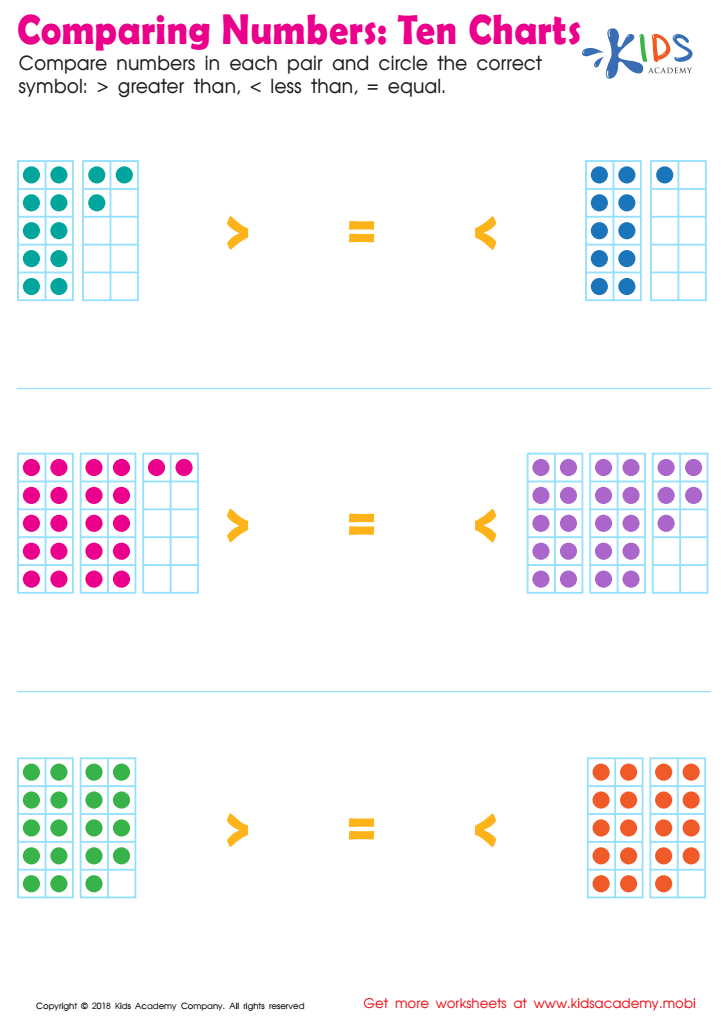

Ten Charts Worksheet
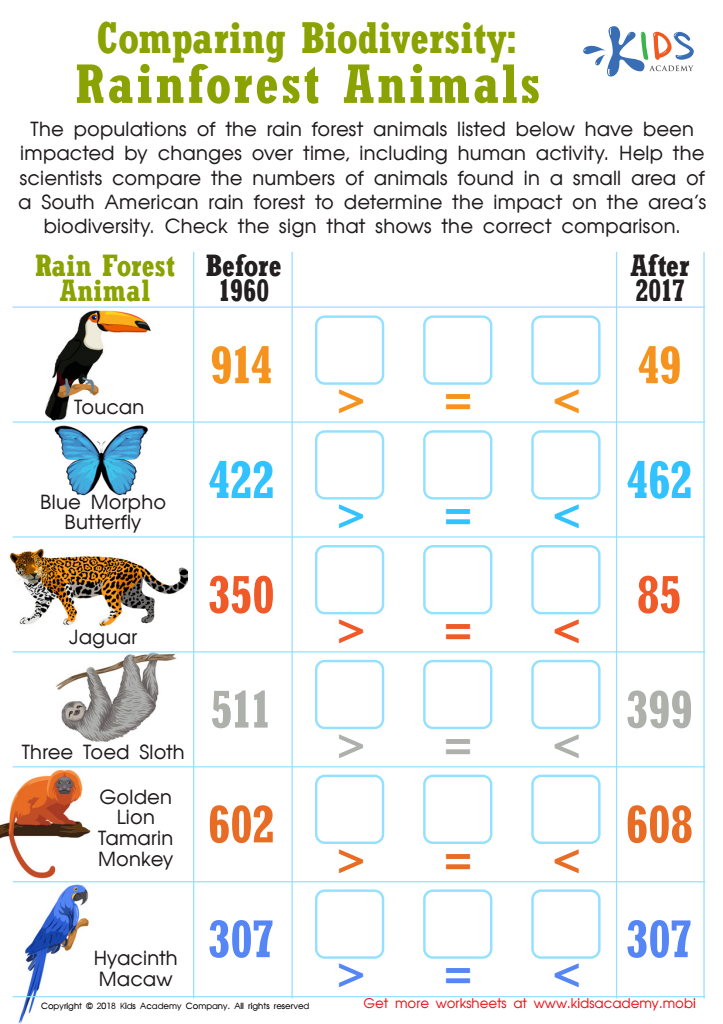

Comparing Biodiversity: Rainforest Animals Worksheet
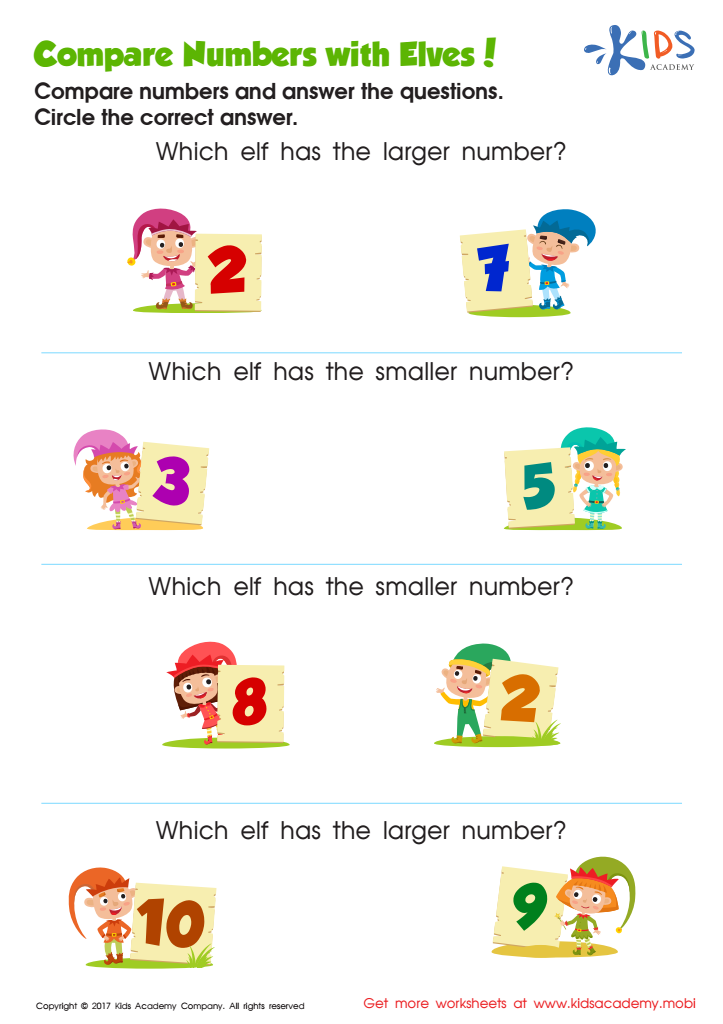

Comparing Numbers Worksheet for Kindergarten
Parents and teachers should care about fostering the ability of young children aged 5-7 to compare numbers because it lays a foundational skill for future mathematical understanding. At this crucial developmental stage, children are forming core cognitive skills related to numeracy. Comparing numbers helps children understand the concepts of "greater than," "less than," and "equal to," which are not only essential for arithmetic but also for understanding data, order, and value distinctions in everyday contexts.
Engaging in activities that involve comparing numbers can strengthen children's number sense, which is their intuitive understanding of numbers and their relationships. This helps build confidence and reduces math anxiety early on. It also facilitates reasoning and problem-solving skills — children learn to make decisions, justify their thinking, and understand patterns.
Moreover, normalizing number comparisons in early learning environments helps close gaps in mathematical achievement by ensuring that all children receive foundational numeracy skills before encountering more complex mathematical concepts. Such early interventions are particularly beneficial as part of a proactive approach to identifying and supporting children with learning difficulties.
Ultimately, caring about and nurturing the ability to compare numbers in early education settings creates a strong, positive attitude toward mathematics and builds a foundation for academic success in later years.

 Assign to the classroom
Assign to the classroom








